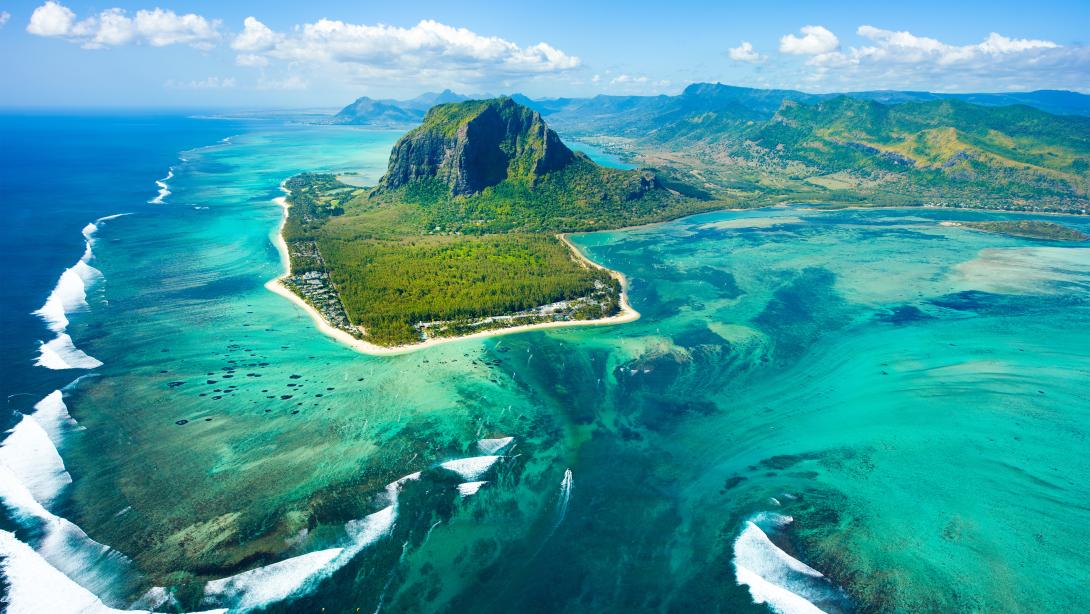
Unlocking significant sums of private investment capital to complement public resources and philanthropy in addressing pressing global challenges, Ocorian Non-Executive Director Raju Jaddoo highlights how impact investing and the impact funds administered by Ocorian Mauritius are playing a critical role in helping recipient countries deliver on their transformational goals.
Mauritius is playing a pivotal role in facilitating investments with a social and environmental impact in Africa. Its business, legal and regulatory framework is conducive to the setting up of fund structures while the availability of experienced professionals is fuelling the growth of a robust fund administration industry. To date, more than 600 funds with an African focus have chosen Mauritius as their structuring platform. Of these, a majority are impact funds.
At Ocorian Mauritius, at least 80% of the funds we administer have an impact agenda for the continent. By enabling and servicing flows of impact funds in this manner, we are helping our clients to achieve greater synergy between value creation and societal benefits.
A catalyst for growth: Impact investing in Mauritius
Many investors do not view impact measurement and management as a necessary cost, but rather as a practice that can inform or improve many aspects of business performance. Measuring the impact of such investments is key to unlocking future development capital for the continent. With impact measurement and management often finding its way onto most board agendas, some boards have gone one step further and established dedicated impact committees.
Most Development Finance Institutions (DFIs) currently using Mauritius as a platform to structure their African impact funds have adopted the International Finance Corporation (IFC) impact investment operating principles. They also regularly report on the impact achieved using the IFC performance standards on environmental and social sustainability. This simplifies and standardises the process of impact reporting across investee companies, irrespective of industry. For instance, one of the DFIs having structured its fund out of Mauritius recently reported that it had deployed €2bn of capital in investee companies across the continent, creating 470,000 decent jobs and generating in turn, €24bn of local income.
Following the trend, private impact investors are rapidly embracing the United Nations (UN) Sustainable Development Goals (SDGs) to measure impact. The SDGs furnish investors with a common framework to help minimise negative effects, maximise positive outcomes and demonstrate impact to relevant stakeholders using a shared and consistent language. Impact themes being pursued range from the creation of decent jobs, poverty alleviation, reduced inequalities, good health and well-being to affordable and clean energy and the empowerment of women, amongst others.
Mauritius as a platform for impact
An impact investor administered by Ocorian Mauritius adapted the SDGs for measuring the targets set for each of the 17 SDGs to be applicable to the private sector, and in particular to the agribusiness sector. That same impact investor reported $136 million in biological asset value and 325,000 tonnes of carbon dioxide removed from the atmosphere in 2018, amongst other environmental highlights.
Another of our clients, an off-grid clean energy supplier, had, as at 2018, impacted 5.5 million lives and averted 455,000 tons of carbon emissions. In addition, another client, active in the financing of African small to medium-sized enterprises, achieved 50 per cent in the number of investee companies meeting unsatisfied demand for goods and services, again contributing to the SDGs. For that investor, the final carry for the fund manager will depend on the level of achievement of the key impact targets.
Such objectively measured metrics can only lend credence to the catalytic role impact investing is having on the continent. This is only a beginning, as impact funds investing in Africa make impact reporting a cornerstone of their investment philosophy.
A continent in need of impact
In 2015, the UN Sustainable Development Solutions Network concluded that lower income countries, of which many are in Africa, faced an annual funding gap of $350 billion to meet the UN SDGs. The Action Agenda called on the private sector to come up with innovative financing solutions such as blended finance and impact investing to help these countries achieve their transformational development goals. Since then, Africa has benefitted from both from blended finance solutions and even more so from impact investing. The GIIN[1] Annual Impact Survey 2019 estimates that 14 per cent of impact funds are located in sub-Saharan Africa amidst a growing industry whose assets under management are globally estimated at $502bn. 40 per cent of investors are also reported to have a regional presence on the continent.
The African continent is also benefitting from capacity building in connection with the impact investing industry. While the majority of Africa-focussed private debt impact funds were historically structured out of Europe, there is an increasing tendency for such funds to be structured on the continent itself, including from Mauritius, given the availability of high quality service providers and their proximity to investee companies. Specialised investment management companies are providing an enabling framework and the necessary comfort to investors, including DFIs, who have committed to put the societal capital at the heart of their investment decisions.
Ocorian Mauritius
A member of the Global Impact Investing Network (GIIN), Ocorian AMEA is at the forefront of the impact investment paradigm, serving some of the industry’s major players and most active DFIs in that space. You can learn more about Ocorian' Mauritius' range of services.
[1] Global Impact Investing Network. The Global Impact Investing Network is the global champion of impact investing, dedicated to increasing its scale and effectiveness around the world. The Network numbers over 20,000, representing the largest global community of impact investors and service providers engaged in impact investing. GIIN drives conversation and actions to ensure impact investing can achieve its potential to accelerate social and environmental progress towards a sustainable world
Related Items
View all
